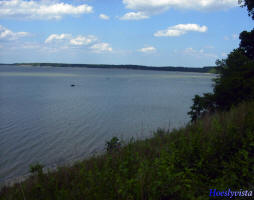 Final declaration of the Euromed Summit of Economic & Social Councils and similar institutions, Rome 10-12 November 2010
Final declaration of the Euromed Summit of Economic & Social Councils and similar institutions, Rome 10-12 November 2010
The representatives of the Economic and Social Councils (ESCs) and similar institutions, together with the representatives of civil society organisations in the Euro-Mediterranean partner countries which do not have an ESC or similar institution, meeting in accordance with the mandate conferred by the Barcelona Declaration of 1995 and extended under the Union for the Mediterranean (UfM), warmly thank the Italian National Economic and Labour Council (CNEL) for its hospitality and contribution to the success of the Summit.
During the Summit, delegations from most UfM countries and the European Economic and Social Committee (EESC) discussed the involvement of civil society in the UfM and more specifically the setting up of an Assembly of Economic and Social Councils and Similar Institutions in the UfM institutional structure.
Other issues on the agenda were decent work and sustainable development around the Mediterranean, vocational training as a factor for competitiveness and job creation, building a fairer society in the Euromed region and agricultural policies in the UfM countries.
The participants adopted several recommendations, among others On the role and participation of civil society in the Union for the Mediterranean (UfM):
- Note that water scarcity is a subject of special relevance for the Mediterranean region. Some 450 million people live in Mediterranean coastal countries. Around the Mediterranean, 20 million people do not have access to drinking water. Partly, this is due to environmental factors but socio-economic, technical and other human factors also play a role.
- Note that poor water usage is a major problem, that water spills have to be brought under control and regulated, and that the use and management of drinking water and water for agriculture and industry must be improved. The implementation of sustainable development policies, as for example recycling and reusing of water, is recommended, taking particular care to ensure the compatibility of technological and ecological choices and approaches (water consumption, energy production, agriculture and monocultures);
- Regret that the Mediterranean Water Strategy could not be adopted at the UfM Ministerial Summit on Water in Barcelona in April 2010, especially as there was an agreement on the main content of the strategy;
- Stress that steps should be taken to optimise and improve consistency of approach in the region and underline the need of coordinated management of shared resources. With the Mediterranean being a shared heritage, it is particularly important to involve all stakeholders when drawing up an integrated management model based on a fair allocation of water, especially as access to water is considered to be a fundamental human right;
- Support the implementation of the provisions of the 1997 United Nations Convention on Law of Non-Navigational Uses of International Watercourses, in a spirit of "fair sharing", approximation of laws, and the reasonable use of water resources between neighbouring countries;
- Point out that civil society organisations and specifically the Economic and Social Councils can help secure transparency in the markets, ensuring that they operate efficiently and that projects correspond to real needs. Consultation of civil society players is all the more important since the stakes are high, both in terms of people's access to water and sanitation, and in terms of the impact on jobs and employment conditions, as well as on qualifications, skills and development projects. In order to be fair and transparent, such consultation implies recognition of the right of association and meeting, as well as freedom of expression and information;
- Underline that it is likewise high time for the UfM's water projects and the future
- Mediterranean Water Strategy to incorporate matters relating to labour and decent work as part of integrated human resource management, since there are many sectors involved in terms of labour conditions and job sustainability. They recommend that the fundamental ILO conventions linked to decent work be integrated into UfM water pojects and the Mediterranean Water Strategy;
- Recommend Member States to work together with the social partners, with support from the ILO, to create a database of direct and indirect jobs at all skills and qualification levels throughout the water and sanitation industry, with a view to anticipating vocational training needs in the sectors concerned. A multilateral recognition and reference framework should also be established;
- Recommend to use sustainable impact assessments (SIA, conducted by the European
- Commission as part of trade agreement negotiations) to integrate decent work aspects into UfM water and sanitation projects, involving civil society stakeholders through the coordination of the Economic and Social Councils and similar institutions of the UfM or the EESC.
| Creator | European Economic and Social Council (EESC) |
|---|---|
| Publisher | European Economic and Social Council (EESC) |
| Type of document | Report |
| Rights | Public |
| File link |
http://www.eesc.europa.eu/resources/docs/declaration_finale_2010_en.pdf |
| File link local |
|
| Source of information | European Economic and Social Council (EESC) |
| Keyword(s) | water scarcity, union for the Mediterranean, mediterranean watr strategy, UfM |
| Subject(s) | AGRICULTURE , ENERGY , FINANCE-ECONOMY , HEALTH - HYGIENE - PATHOGENIC MICROORGANISM , HYDRAULICS - HYDROLOGY , INDUSTRY , NATURAL MEDIUM , POLICY-WATER POLICY AND WATER MANAGEMENT , PREVENTION AND NUISANCES POLLUTION , RISKS AND CLIMATOLOGY , TOURISM - SPORT - HOBBIES , WATER DEMAND , WATER QUALITY |
| Relation | http://www.emwis.net/topics/WaterScarcity |
| Geographical coverage | Italy, |
 you are not logged in
you are not logged in





